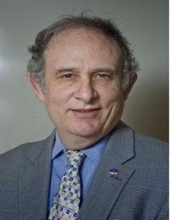CEE Seminar: Viewing the Earth’s Global Environment from Space -- from Scientific Knowledge to Societal Benefits

Associate Director for Research
Earth Science Division
NASA Science Mission Directorate
The vantage point of space provides a unique opportunity to see all the elements of the global Earth system – atmosphere, ocean, land surface, ice, biosphere – and how they interact with each other. The ability to characterize both natural processes and those caused by humans, as well as the ability to study processes on a range of time scales from days to decades, helps scientists characterize and understand Earth system variability and its causes and effects, as well as allowing for improvements in predictive capability. With this information, Earth system scientists can work with partners in other federal and international agencies, academia, industry and the non-profit sector to help anticipate and respond to both naturally occurring and human-induced changes in the Earth system. In this talk, a review will be presented of how satellite-derived information, together with complementary data from aircraft and surface-based measurements, used in the context of Earth system models, are advancing our knowledge of the Earth and how the resulting information is being used.
Jack Kaye is the associate director for Research of the Earth Science Division (ESD) within NASA’s Science Mission Directorate (SMD). He has been a member of the Senior Executive Service since August 1999, managing NASA’s Earth Science Research Program. Earlier positions in his more than 30-year career at NASA include being a space scientist at the Goddard Space Flight Center and manager of the Atmospheric Chemistry Modeling and Analysis Program at NASA HQ. In addition, he has held temporary acting positions as deputy director of ESD and deputy chief scientist for Earth Science within SMD. His academic training is in chemistry (B.S. Adelphi University, 1976; Ph.D., California Institute of Technology, 1982). He also held a postdoctoral research position at the U.S. Naval Research Laboratory. As associate director for research, Kaye is responsible for the research and data analysis programs for Earth System Science, covering the broad spectrum of scientific disciplines that constitute it. He represents NASA in many interagency and international activities and has been an active participant in the U.S. Global Change Research Program (USGCRP), in which he has served for several years as NASA principal and vice chair of the Subcommittee on Global Change Research (from Jan., 2009 through May, 2010, he served as the acting chair for these activities). He also serves as NASA’s representative to the Subcommittee on Ocean Science and Technology. He previously completed a six-year term as a member of the steering committee for the Global Climate Observing System and currently serves an ex officio member of the National Research Council’s Roundtable on Science and Technology for Sustainability and the Chemical Sciences Roundtable. He has received numerous NASA awards (most recently, the Outstanding Leadership Medal in 2009), as well as recognition as a Meritorious Executive in the Senior Executive Service in 2004 and 2010, and named as a Fellow by the American Meteorological Society in 2010 and the American Association of the Advancement of Science in 2014. He was elected to serve as co-secretary of the Atmospheric Sciences Section of the American Geophysical Union (AGU) for 1998-2000, and earlier served on the AGU Publications Committee. The AGU has recognized him on two occasions with a Citation for Excellence in Refereeing. He has published more than 50 refereed papers, contributed to numerous reports, books and encyclopedias, and edited the book Isotope Effects in Gas-Phase Chemistry for the American Chemical Society. In addition, he has attended the Leadership for Democratic Society program at the Federal Executive Institute and the Harvard Senior Managers in Government Program at the John F. Kennedy School of Government at Harvard University.
Share
Download
Upcoming Events
-
MAE 298 SEMINAR: Biomechanics of Rotator Cuff
-
CBE 298 Seminar: Micro- and Nanofluidic Systems for Molecular Biosensing, Nanotoxicity, and Optogenetics
-
MSE Special Seminar: Architecting 3D Complex Materials for Sustainability
-
MSE Special Seminar: Decarbonizing Industries for a Climate-resilient Future - From Renewable Energy to Sustainable Material Recovery
-
CEE Seminar: BIM and the Digital Twin
